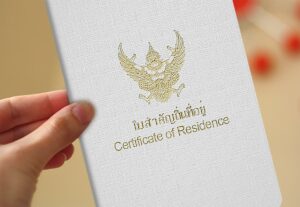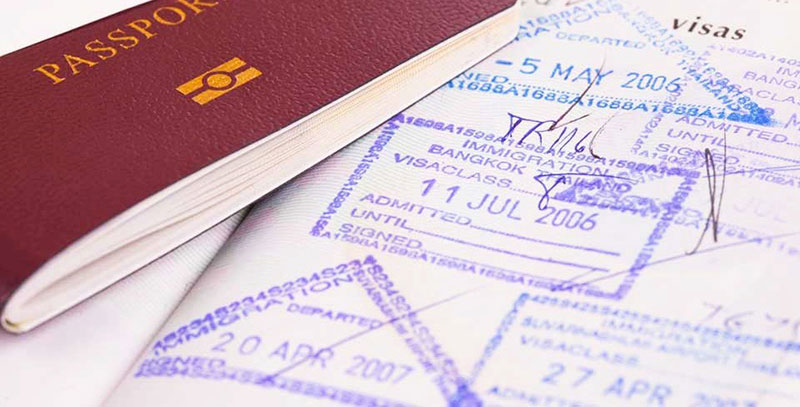The Thailand Visa Exemption scheme allows citizens of certain countries to enter Thailand without obtaining a visa in advance, for short-term stays, under conditions set by the Thai government. This policy facilitates tourism, business visits, and short-term family visits while maintaining immigration control.
This guide provides a comprehensive analysis of the visa exemption framework, legal foundation, eligibility, procedural requirements, extensions, and compliance considerations.
1. Legal Foundation
The visa exemption system is implemented under the Immigration Act B.E. 2522 (1979) and related ministerial notifications. Key provisions include:
-
Section 12 – Sets the general conditions for entry into Thailand.
-
Section 34(5) – Empowers the Minister of Interior to issue regulations exempting certain foreign nationals from visa requirements.
-
Section 35 – Allows the Immigration Bureau to implement ministerial regulations.
-
Ministerial Notification on Visa Exemption – Lists eligible countries and entry conditions.
The Ministry of Foreign Affairs (MFA) and the Immigration Bureau coordinate on policy, while airlines and border control officers enforce entry conditions.
2. Purpose of the Visa Exemption Policy
The scheme is designed to:
-
Facilitate inbound tourism and short-term visits.
-
Support bilateral and regional agreements (e.g., ASEAN frameworks).
-
Streamline entry for nationals from countries deemed low-risk in immigration control terms.
3. Eligible Countries
As of 2024, over 60 nationalities benefit from the visa exemption policy. The list is periodically updated through ministerial notifications.
Categories of Agreements:
-
Bilateral visa waiver agreements (e.g., Japan, South Korea).
-
ASEAN member privileges (30–45 days, sometimes longer for certain members).
-
Unilateral exemptions granted to countries with good immigration compliance records.
4. Conditions of Entry Under Visa Exemption
4.1 Length of Stay
-
Standard period – Historically 30 days; extended to 45 days during certain promotional or recovery periods (subject to government announcements).
-
Air arrival – Full period granted at designated international airports.
-
Land/sea arrival – Often limited to 30 days; certain nationalities have limits on the number of entries by land per year (commonly two).
4.2 Passport Validity
-
Minimum 6 months validity required on the date of entry.
-
Some checkpoints enforce stricter validity rules for nationals from specific countries.
4.3 Proof of Exit
-
Must have a confirmed ticket departing Thailand within the exemption period.
-
Open-ended tickets may be refused.
4.4 Financial Proof
-
Immigration officers may require evidence of sufficient funds (commonly 10,000 THB per person or 20,000 THB per family).
5. Entry Points and Immigration Control
Visa-exempt entry is available at:
-
All international airports (Suvarnabhumi, Don Mueang, Phuket, Chiang Mai, etc.).
-
Major land border checkpoints with Laos, Cambodia, Myanmar, and Malaysia.
-
Selected sea ports for cruise passengers.
Border officers have discretion under Section 16 of the Immigration Act to deny entry if the traveler fails to meet requirements or is deemed inadmissible.
6. Extensions of Stay
Under Section 35 of the Immigration Act and Immigration Bureau regulations:
-
Visa-exempt entries can be extended once by 30 days at a local Immigration Office.
-
Extension fee: 1,900 THB.
-
Applicant must submit passport, TM.7 form, photograph, and supporting documents (e.g., accommodation proof).
-
Discretion rests with the immigration officer.
7. Common Misunderstandings and Pitfalls
7.1 Overstay Penalties
-
Overstaying even by one day results in a fine (500 THB/day, capped at 20,000 THB under Section 81).
-
Overstays of more than 90 days can trigger entry bans ranging from 1 to 10 years (Section 12(7) and Ministerial Regulation No. 29).
7.2 “Border Runs”
-
Frequent consecutive visa-exempt entries may be viewed as an attempt to reside in Thailand without proper visa status.
-
Immigration officers can refuse entry if the traveler’s pattern suggests abuse.
7.3 Employment
-
Working while on visa-exempt entry is prohibited under the Alien Employment Act B.E. 2551 (2008). A work permit is required for any form of employment, paid or unpaid.
8. Interaction with Other Visa Types
Visa exemption is not convertible to most long-term visas inside Thailand. Exceptions exist under special Immigration Bureau orders, but generally:
-
Those intending to work, study, or reside long-term should apply for an appropriate Non-Immigrant visa abroad.
-
Visa exemption is intended only for short visits.
9. Real-World Case Examples
Case 1 — Overstay after Extension:
A European traveler entered visa-exempt for 45 days, extended by 30 days at Chiang Mai Immigration, but overstayed by 5 days after forgetting the departure date. Result: 2,500 THB fine and warning recorded in the immigration database.
Case 2 — Frequent Land Crossings Denied:
A backpacker alternated between Cambodia and Thailand 6 times over 3 months using visa exemption. On the seventh attempt, entry was refused at Aranyaprathet land border under Section 12(2) — suspected misuse for de facto residence.
Case 3 — Denial for Insufficient Funds:
A South American traveler could not show proof of funds at Suvarnabhumi Airport and was refused entry despite holding a return ticket. Immigration cited non-compliance with financial requirements under ministerial rules.
10. Practical Compliance Checklist
Before using visa exemption:
-
Confirm your country’s eligibility and current allowed stay period.
-
Ensure your passport has at least 6 months’ validity.
-
Book return/onward travel within the permitted stay period.
-
Prepare proof of funds (cash, bank statement, or card with evidence of balance).
-
Avoid patterns of repeated entries that could be construed as residence.
-
If planning to stay longer than allowed, consider applying for an appropriate visa in advance.
Conclusion
The Thailand Visa Exemption program offers a flexible and convenient way for eligible travelers to enter Thailand without prior visa arrangements, provided they comply with strict entry and stay conditions. The scheme is built on ministerial authority under the Immigration Act, and enforcement discretion rests heavily with immigration officers.
Used correctly, it is a valuable entry option; misused, it can result in entry refusal or bans. Travelers should therefore prepare all required documents, understand the limits, and avoid overstays or employment without authorization.
You might also enjoy

Thai Business Partnership
A Thai business partnership is one of the most commonly

Thailand Permanent Residency
Thailand Permanent Residency (PR) is a highly sought-after immigration status

Child Custody in Thailand
Child custody in Thailand is governed by the Civil and


